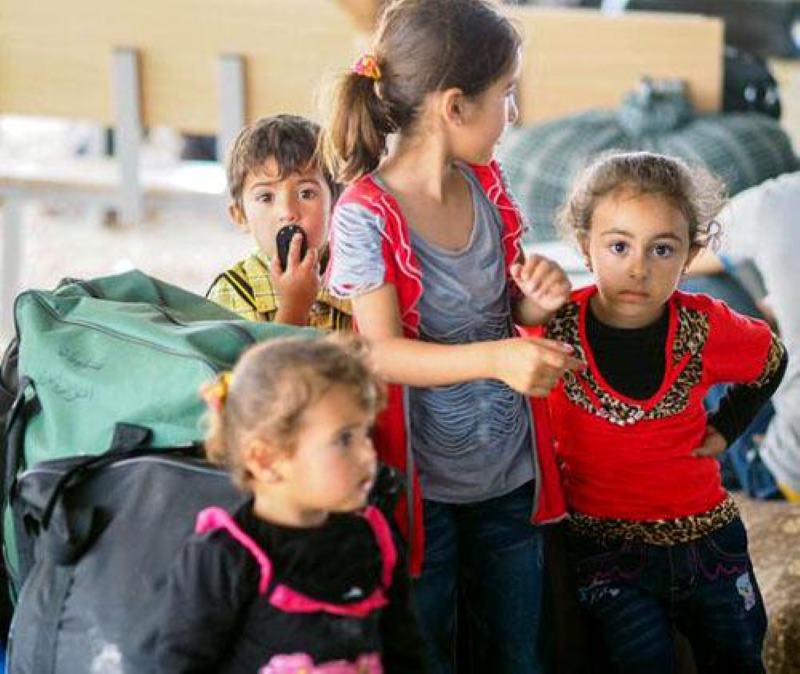
jordan and egypt spearhead efforts to combat child labor in the arab world
Experts claim that Jordan and Egypt have taken the lead in the fight against child labour in the Arab world. These two nations have made tremendous progress in addressing the problem, implementing new laws, and setting up effective monitoring mechanisms to safeguard kids from exploitation. In light of World Day Against Child Labour, it is critical to acknowledge the advancements Jordan and Egypt have achieved in addressing this human rights issue.
Jordan’s Initiatives to Fight Child Labour
Jordan updated its child labour law in 2008; since then, it has shown a solid commitment to implementing it. The nation has strongly emphasised labour inspection, which is essential for finding and correcting cases of child labour. The Jordanian government has established systems to refer impacted children to the proper services, such as education and counselling, and enforcing the law. Jordan prioritises monitoring programmes for child labour to ensure that kids get the required help.
Egypt’s Commitment to End Child Labour
Egypt made a big step forward in 2022 when it passed a rule that forbids hiring anyone under the age of 15. The nation has also made extensive efforts to examine its supply chains and address issues with child labour there. Egypt is committed to eliminating child labour through a strong legislative system and institutional structure. The government is taking steps to lessen and eradicate child labour in the nation.
Praise for Jordan and Egypt’s Progress
International Labour Organisation (ILO) and World Vision International experts have praised Jordan and Egypt’s initiatives to combat child labour. ILO child labour expert Ben Smith attests to the significant advancements made by both nations. The improvements made by Jordan and Egypt compared to other nations in the region have also been recognised by Rania Aljawi, child protection quality assurance lead at World Vision International.
Keep Reading
Challenges Faced by Jordan and Egypt
Despite the advancements, there are still issues with ending child labour. The total abolition of child labour in Jordan is hampered by deeply ingrained social attitudes, such as the notion that kids should work to support their families. In addition, both nations’ economies are struggling, and cultural norms encourage underage labour. Experts emphasise the need to use scientific approaches to alter behaviour and the promotion of education as a way to end the cycle of child labour in order to address these issues.
Child Labor in Crisis-Affected Countries
Despite substantial improvements by Jordan and Egypt, child labour is becoming more common throughout the Arab world. According to the ILO, there will be 2.4 million working kids aged 5 to 11 in 2020, up from 1.2 million in 2016. Since minors aged 12 to 17 are not included in these statistics, child labour is probably more prevalent than these numbers suggest. Approximately 38% of children aged 5 to 11 who work in hazardous workplaces are children in the region.
Child labour is more prevalent in nations that are in conflict or crisis, such as Yemen, Iraq, Syria, and Libya. Children have been subjected to physical harm, death, and exploitation due to the continuing war in Yemen and the aftermath of the battles in Iraq and Syria. Children in these nations are particularly vulnerable because of sociopolitical unrest, a lack of educational opportunities, and declining economic conditions. The political unrest in Sudan has also increased child labour and raised the possibility of kidnapping by armed organisations.
Natural disasters and the results of climate change, especially among vulnerable populations like migrants and indigenous peoples, worsen child labour. Homeless households are caused by these catastrophes and environmental changes.
Although child labour is still a significant problem in the Arab world, Jordan and Egypt have emerged as leaders in the fight against it. Both nations have achieved significant progress in safeguarding children from exploitation through legislative changes, effective monitoring mechanisms, and a solid commitment to implementation. International organisations and authorities applaud Jordan and Egypt for their commitment to ending child labour and for their achievements. However, obstacles, including societal views and economic constraints, continue to exist, preventing total elimination. It is essential to alter behaviour through education and scientific methodologies in order to overcome these difficulties.









